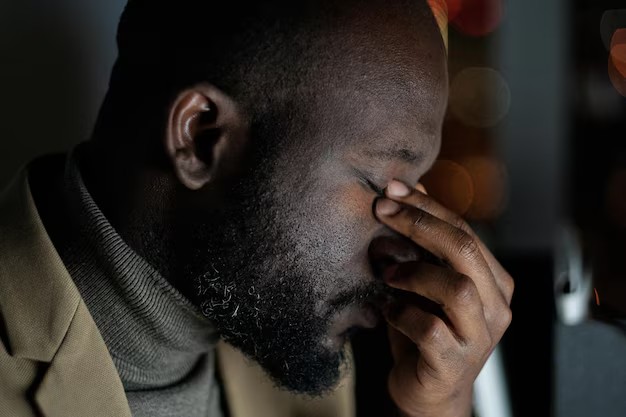- The statistics show that, globally, men are almost four times more likely than women to die by suicide. They make up the overwhelming majority of prison populations, often due to systemic issues like poverty and lack of education.
Growing up, my mother always told me, "Men are supposed to be strong. Don’t show weakness. Don’t cry." Like many boys, I took her words to heart. Men, I thought, were supposed to endure silently, to shoulder their burdens without complaint.
I remember a day when anxiety had me cornered, making every breath feel heavy and every thought chaotic. School felt overwhelming, but I couldn’t bring myself to open up about it. My friends would laugh it off, telling me to "man up," and the thought of showing vulnerability felt like admitting failure. So I bottled it up, plastering a smile on my face and pretending everything was fine.
This isn’t just my story, it’s the reality for countless men. We’re taught to hide our struggles, to suppress emotions, and to keep pushing forward. Yet, the toll of this silence is immense, and it’s time we start talking about it.
There’s no denying that female empowerment movements have achieved incredible progress. Women have fought for safety, equality, and recognition, reshaping workplaces, policies, and cultural norms. These movements are essential and must continue because a fairer world benefits everyone. But as society addresses these inequalities, we must also recognize the silent crisis affecting men.
The statistics show that, globally, men are almost four times more likely than women to die by suicide. They make up the overwhelming majority of prison populations, often due to systemic issues like poverty and lack of education. Men are more likely to drop out of school and less likely to seek higher education, limiting their prospects. The expectation to provide, protect, and perform weighs heavily, and when jobs are lost or relationships fail, it can feel like their identity is slipping away.
Read More
The narrative of "being a man" often demands silence in the face of pain, but this approach is unsustainable. For too long, seeking help has been stigmatized, and vulnerability has been equated with weakness. Yet, the truth is the opposite—it takes immense courage to open up, to ask for help, and to admit when things aren’t okay.
This isn’t about competing struggles between men and women; it’s about recognizing that both genders face unique challenges. For men, it’s about creating spaces where they can express emotions without judgment and redefining strength to include honesty and vulnerability.
Being a man shouldn’t mean carrying the weight of the world alone. It’s time to change the narrative—for ourselves, our families, and future generations.










